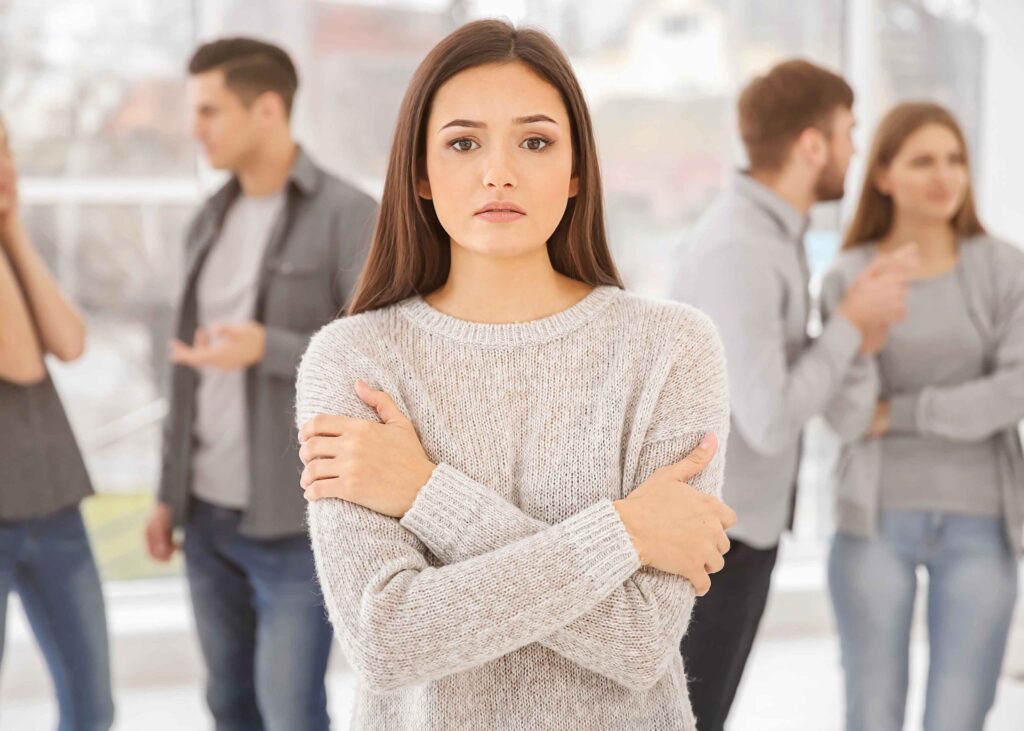
Coping with social anxiety can be tough. To understand the difficulty of the situation we must first understand the definition of social anxiety. It is the fear of being with people in a social place. This could be at work, the grocery store, or at a restaurant. People by nature are social beings, so not being able talk to or be with other people makes life hard. According to the Social Anxiety Institute, about 7% of people cope with social anxiety today. It is considered to be the third largest mental health concern. People dealing with social anxiety often blame themselves. They feel less than others and often do not know why they have this anxiety. They simply believe they do not measure up to their peers.
What is Social Anxiety?
Social anxiety can take many forms. The most common form involves feelings of embarrassed when being around other people. An individual feels afraid that they may say or do something that others will judge them for and make fun of them about in the moment or later. This form of social anxiety is considered to be generalized social anxiety because all social situations from a simple get-together with friends to sitting next to a stranger on a plane becomes worrisome. The person coping with social anxiety may have a specific worry, such as speaking in a large group or walking down the hallways of their office.
Symptoms or Signs of Social Anxiety
Some symptoms or signs of social anxiety include the following:
- Worrying about how others see them when being introduced
- Being anxious if someone were to watch them do something
- Worrying about what they might say when meeting someone in authority, such as senior manager
- Struggling to think of something to say when introducing themself in to a group
- Purposely walking out of their way to avoid high traffic hallways at work or school
- Sitting in the back of class or meeting room
- Avoiding places with large crowds, such as a movie theater.
Causes of Social Anxiety
Two areas cause social anxiety: genes and how a person grew up. It affects people from all walks of life and age groups. Having difficult or hard childhood experiences can cause social anxiety. Being bullied as a child causes fears so the child grows up into a cautious adult because they do not trust people to not make fun of them for something they say or do because their experience tells them otherwise. Childhood experiences shape adult thinking and behaviors. Biology also contributes to social anxiety. An overactive amygdala may cause a person to feel anxious in social situations. The amygdala controls emotions. The fight or flight response is controlled by the limbic system through the amygdala.
Treatments for Social Anxiety:
Cognitive Behavioral Therapy (CBT)
CBT seeks to help an individual understand the false belief causing the fear. Once false beliefs are identified the therapist teaches the individual how to lean into the fear and dispute the false belief through learning how to reinterpret core beliefs in a healthy way. A main goal of CBT is to create long lasting change that minimizes social anxiety through cognitive means, such as evidence building and restricting thoughts.
Exposure Therapy
Exposure Therapy is a key technique to treating social anxiety because it slowly introduces the individual to the anxiety-provoking situation. By slowly exposing the individual to the anxious situation and providing tools to help the person cope with the social interaction, the individual builds up confidence and learns to trust others.
To learn more about anxiety click on the Anxiety page, send a contact request form, call, or email me at angelie@pillarsofhopecounseling.com.